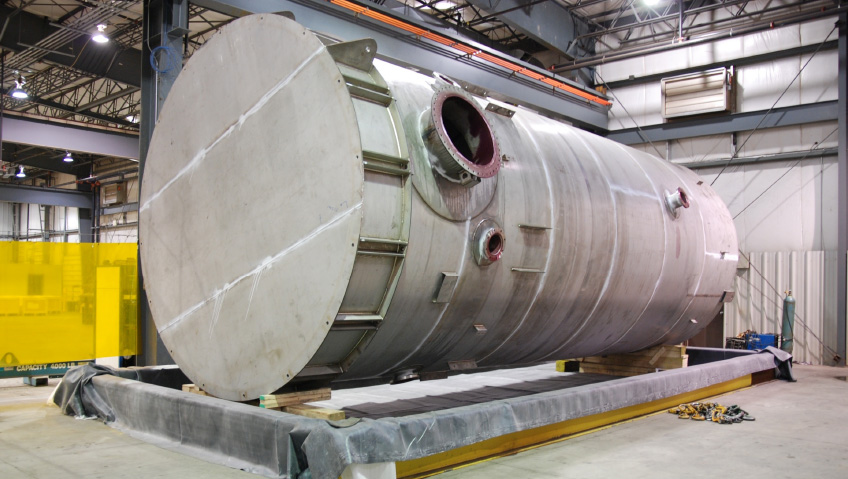Dillon County has certainly been ‘Alive on the I-95,’ as the slogan says, referencing the north-south interstate corridor that runs from the international border crossing at Houlton, Maine all the way to the tip of Florida and right through the center of the county. But it wasn’t necessarily always thriving, apart from the massive south of the border retail, accommodation, and amusement complex—a piece of Americana no tourist can resist—located just south of the North Carolina state border.
However, five years ago, with the opening of Inland Port Dillon, the notion that Dillon County was merely a drive-through on the way to somewhere else changed. The manufacturing and distribution communities sat up and took notice when rural Dillon County emerged as the place to be, a direct result of the huge opportunities the inland port offers for businesses to succeed.
To learn more, we spoke with Rodney Berry, the county’s Economic Development Officer. Originally from Dillon County, he served in the U.S. Marine Corps and enjoyed a career in the publishing industry before pivoting to economic development because of the significant positive impact it has on families’ well-being. In this capacity, Berry has served as Mayor, county administrator, and congressional director.
Inland Port Dillon – a game changer
Located in the county seat, Inland Port Dillon, which opened in 2019, is the South Carolina Ports Authority’s (SCPA) second inland port, with the other in Greer. It is the result, Berry says, of a bi-partisan effort. “We had a lot of people working at the federal, state, and local levels to make this happen.”
Now the inland port is inviting manufacturers, distributors, importers, and exporters to enjoy the benefits of connecting with the Port of Charleston, one of the U.S.’s largest and busiest deepwater ports, serviced by nearly a dozen ocean carriers.
“The Port of Charleston is a huge economic driver in the State of South Carolina,” Berry explains, “and here in Dillon, the inland port is our flagship. You can unload anything from anywhere in the world in the Port of Charleston and it can be directly railed to Dillon via CSX’s Class 1 Rail.”
Dillon could be the product’s destination if it is fulfilling a manufacturer’s supply chain need, or it could be transported across the country from a distribution center, either by rail or road. Alternatively, anything can be shipped out, from manufactured goods to produce, such as the grains and soybeans grown in the state.
The inland port has given a competitive edge to the region because of the substantial freight savings associated with rail—anywhere from 10 to 35 percent—over the cost of transportation by truck, and business has grown every year. In addition, the Match Back program offered by the SCPA in Dillon matches empty containers with exporters, streamlining the process so that when the product leaves Dillon via rail for Port Charleston, it is ready to be loaded aboard the ship.
Berry explains that when he receives calls at the Economic Development Office, they are almost all inquiring about the inland port and what kind of savings can be realized by locating in Dillon. Exporters receive one Dillon-origin rate from the ocean carrier which includes all terminal fees in Dillon, CSX rail transit to Charleston, delivery to the container terminal, plus international shipping to the destination. Importers also receive one rate from the ocean carrier, which includes shipping to Charleston, SCPA-provided dray to a local CSX intermodal ramp within 24 hours of becoming available (assuming the box has been released by Customs and everything is in order), rail transit to Dillon, and handling and facilitation fees at the inland port.
Dillon Inland Port is in a fully-serviced industrial park, ready to receive manufacturing and distribution industries, with all the necessary infrastructure in place—gas, electricity, water, sewer, high-speed Internet, and several available buildings and space to build others. “We have developed the area around the port and done our homework,” Berry says.
There are other areas available for development in proximity to the industrial park as well. Just a mile away is Harbor Freight’s 2 million-square-foot retail and distribution center for high-quality tools, which more than doubled in size after the inland port opened. It provides over 500 jobs and ships tools by rail to retail locations across the nation.
Manufacturing companies located in the area and listed by Dun & Bradstreet as having sales figures over $1 million include The Herald Publishing Company, Herald Multiforms (office equipment), Perdue Chicken, and Wyman-Gordon. But Berry is determined to recruit more companies, and to that end has founded the Dillon County Public-Private Partnership, based on the idea that “even the best planted seeds need a push to grow in the right direction.”
Through a series of monthly informational and educational presentations from leaders in business, education, and public service, Berry has developed an ambassador program to educate a core group of citizens who will be ambassadors for the county, prepared to speak knowledgeably about the advantages of doing business here and to welcome new businesses when they arrive.
More reasons to do business in Dillon County
While having an inland port seems reason enough to open or expand a business in Dillon County, there are even more sound incentives. The county, says Berry, “has been unwaveringly supportive and fiercely proactive in driving economic development, demonstrating a relentless commitment to fostering growth and opportunity in the region.”
Indeed, the State of South Carolina has a strong pro-business attitude and is ranked among the top five most business-friendly states in the nation. The state-wide incentives and grants available to businesses, based on the size of the investment and number of employees, is something the county can leverage, along with the advantages of the port, to attract investors.
In addition, company owners and managers can rely on a well-trained local workforce. “We work closely with Northeastern Technical College,” Berry says, describing college administration as nimble and able to pivot to offer programs that meet the needs of employers. “They work with our local industry, and they know what needs to be done and they do it.”
Northeastern Technical College is one of the 16 colleges within the SC Technical College System along with two statewide programs, readySC™ and Apprenticeship Carolina™, all of which combine to play a key role in education and training the workforce for in-demand and high-skilled jobs. Even though the population of Dillon County is relatively small at an estimated 27,649, employers have an available workforce of nearly one million to draw from within 60 miles of its geographical center.
A healthy, balanced lifestyle
Dillon County offers residents a relaxed, rural lifestyle, something many urban dwellers long for and are seeking out, says Berry. But with urban amenities only a short drive away in Fayetteville, North Carolina, and rich tourism offerings just two hours south in Myrtle Beach, South Carolina, newcomers don’t feel isolated from the things they are used to having or doing. Housing costs are generally lower, and Berry says his department is aiming to keep it that way by recruiting developers to build more housing to accommodate middle-income families, as he expects the population to grow.
The county is especially fortunate to have excellent healthcare services through McLeod Health, a non-profit organization that purchased and manages the hospital and offers services typically only found in larger centers. “The hospital is a gem,” according to Berry. “It is extraordinary for a county our size to have such a robust health facility.”
And last but not least, there is the inviting climate, where temperatures range from 73°F to 95°F in July, the hottest month, to lows of 40°F to 60°F in January, and make outdoor recreation—hiking, fishing, boating in the rivers, and barbecuing and dining al fresco—possible year-round. With snow rarely seen, except at higher elevations, a location 60 miles from the coast so that it is not affected by storm surges, and 216 days of sunshine per year—combined with exceptional business opportunities in a pro-business state—Dillon County, South Carolina is truly the ideal place to be.






